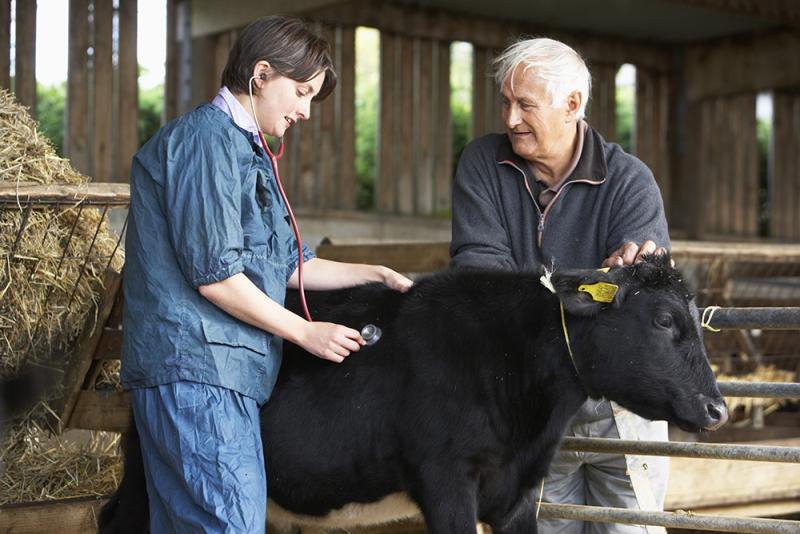Brexit, public policy and trade change creating 'perfect storm' for vet shortage

The effects of Brexit, changing public policy and trade is creating the "perfect storm" which could lead the UK to have a shortage of vets.
The British Veterinary Association (BVA) stated the concerns at the the organisation’s annual London dinner on Tuesday (30 January).
Speaking to the Dinner’s 70 guests, BVA President John Fishwick said the volume of exports requiring veterinary certification could increase by as much as 325%.
As the UK exits the EU, new trade agreements for meat and agricultural products like milk, gelatine and hay could trigger a significant increase in the number of veterinary certifications needed.
According to BVA, this would require many more vets to perform this role.
“Depending on the outcome of Brexit negotiations, new veterinary certifications will need to be developed and supervised to ensure the continuation of smooth trade, which will require an increase in the number of specially trained Official Veterinarians to perform this role,” Mr Fishwick explained.
UK reliance
The BVA President highlighted that Brexit has brought into "sharp relief" the UK’s reliance on EU veterinary professionals.
In food safety and hygiene alone, it is estimated 95% of Official Veterinarians (OVs) working in abattoirs are from overseas, with the large majority graduating in the EU.
The BVA President acknowledged the UK Government’s reassurances for non-British EU nationals currently living and working in the UK. However for some, he said, these have come "too late".
Mr Fishwick added: “Research by the RCVS has shown that nearly a third of vets and vet nurses whose nationality is non-UK European are considering a move out of the UK.
“To prevent an acute crisis in veterinary capacity, BVA is urging the Home Office to add veterinary surgeons to the Shortage Occupation List.”
Capacity Project
The veterinary industry is currently working with the government on a strategic Veterinary Capability and Capacity Project to ensure the development of a flexible and skilled workforce.
The BVA said it will need to meet the UK’s needs for both the immediate and longer term future.
During his speech Mr Fishwick outlined his Presidential theme of ‘Team vet: working together’, to highlight the the importance of vets.
“It is veterinary input and expertise that underpins the UK’s high standards of animal health, animal welfare and public health,” he explained.
“We are rightly proud of these high standards … Yet these standards can only be maintained with a robust, sustainable veterinary workforce in place.”
Mr Fishwick set out BVA’s other priorities for the coming year, including working towards an end to non-stun slaughter; rolling out mandatory CCTV in slaughterhouses across the UK; strengthening veterinary surveillance; and reducing antibiotic resistance. The BVA President highlighted the Association’s recently launched #BreedtoBreathe campaign.








